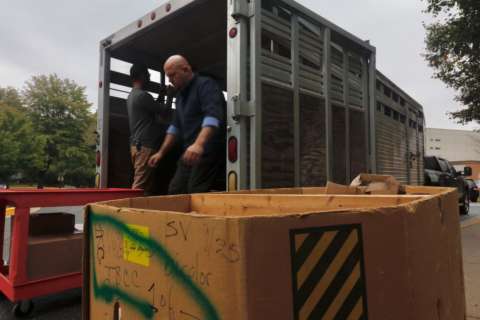This video is no longer available.
It’s not just the high temperatures that make farming tougher, it’s the drought conditions that have farmers feeling watchful.
According to the Interstate Commission on the Potomac River Basin, there are moderate to severe drought conditions in the Potomac River Watershed and that’s affecting farmers, their crops and their livestock in our area.
In Poolesville, Maryland, Ali Mohadjer, the owner and operator of East Oaks Farm, stands near his flock of Rhode Island Red chickens, pointing out the fans where they cluster in their shaded coops.
Like humans, it turns out chickens feel the heat, and can become less productive.
Mohadjer told WTOP that egg production is down by 30%. Typically, he said, “We expect to get somewhere between 18 to 20 dozen eggs a day. Now, our production is down to 12 to 13.”
Inside his greenhouse, a variety of table crops, including heirloom tomatoes, are planted in containers that allow him to conserve water while getting a healthy yield from his plants.
There are two concerns on the property: a field planted with hay is the color of straw instead of green, and the pond on the property has receded several feet due to the drought.
Along with the dry weather, the extreme heat is a worry for him. He sells produce to local restaurants and farmers’ markets, and directly to customers who visit the property.
“The farm is generally a good place to see the animals and have fun, but in this type of weather,” with feels-like temperatures in the 100-105 degree range, “no one wants to come, and so, consequently, we don’t get as many customers this year as in prior years,” he said.
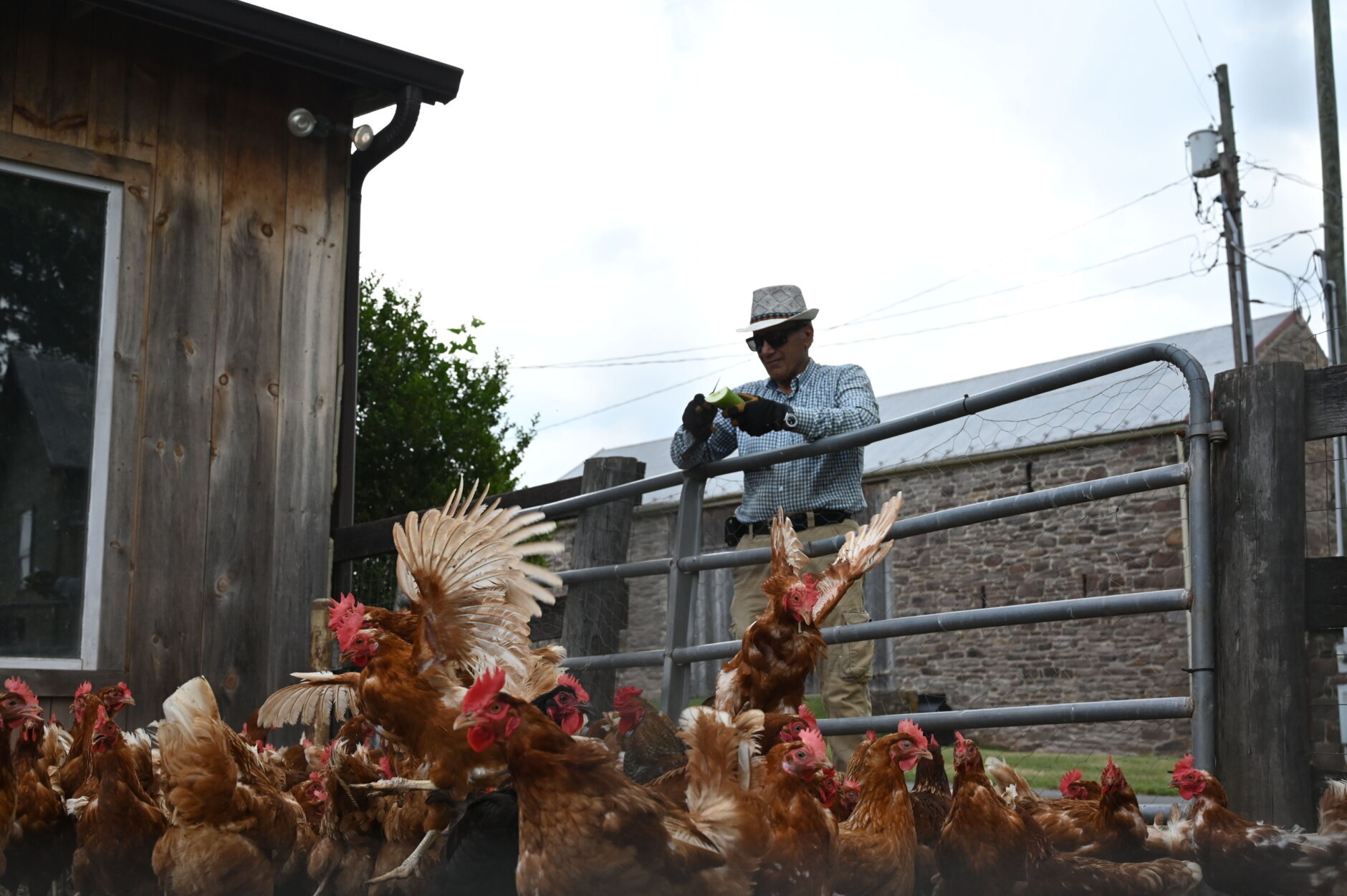
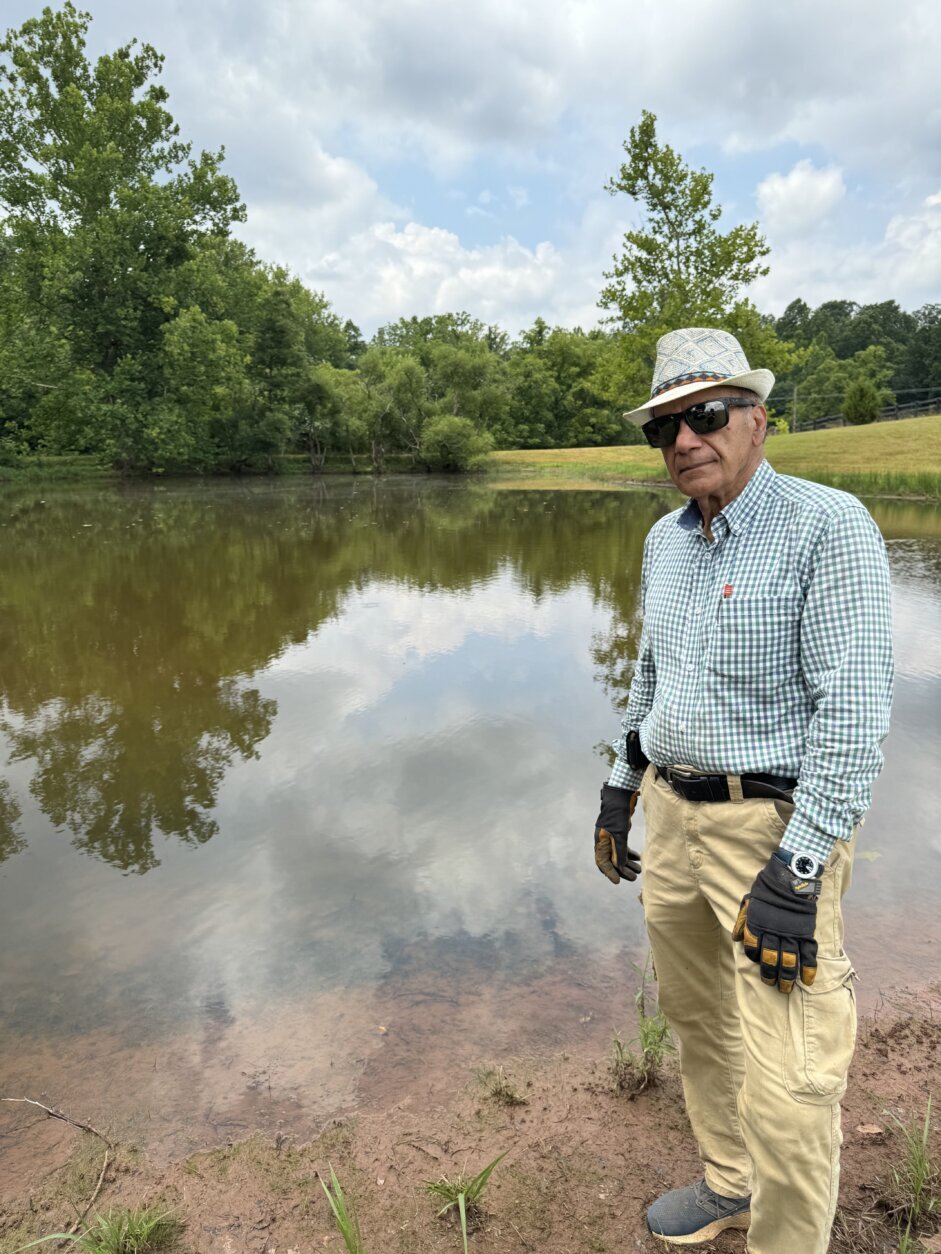
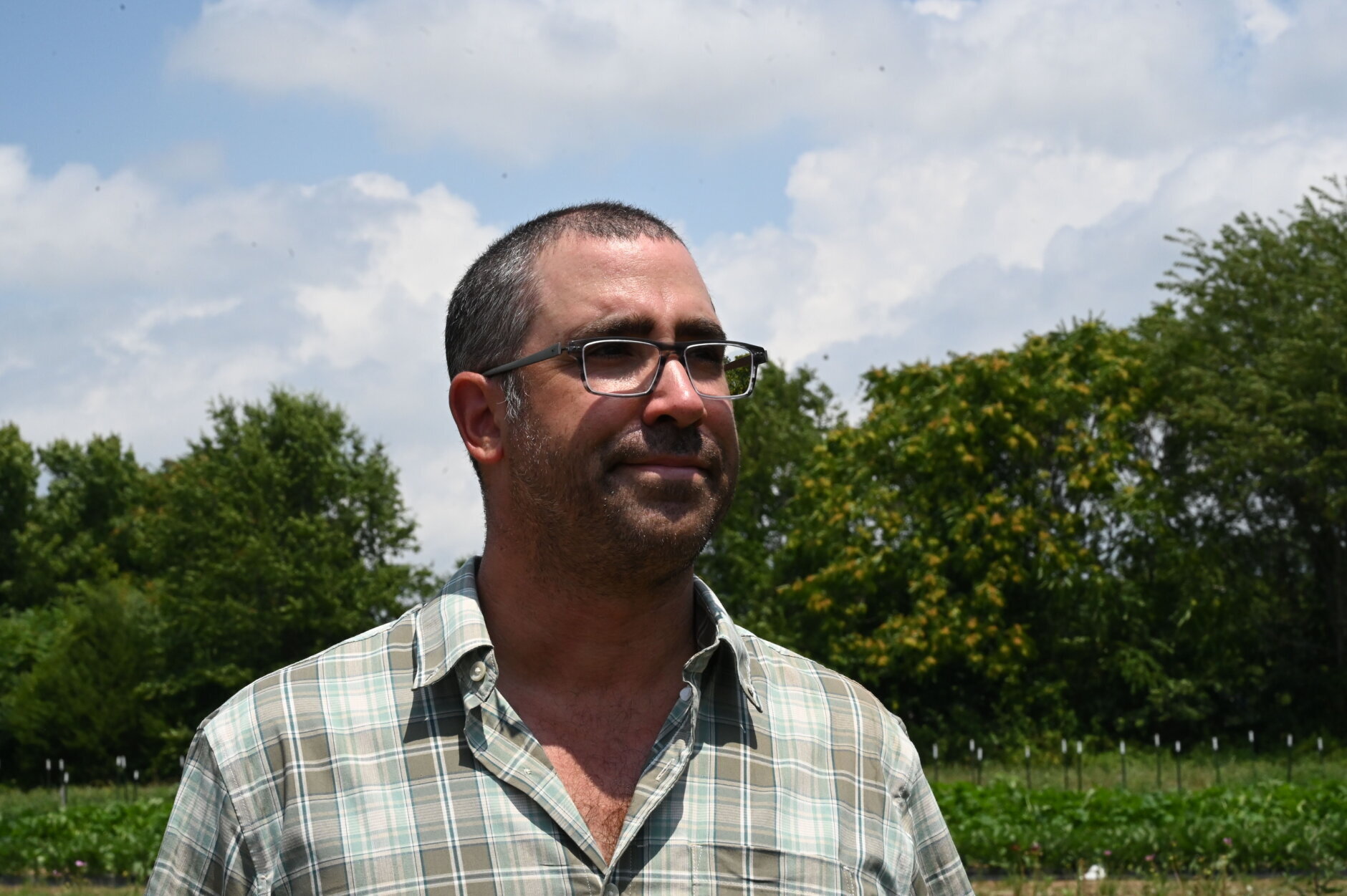
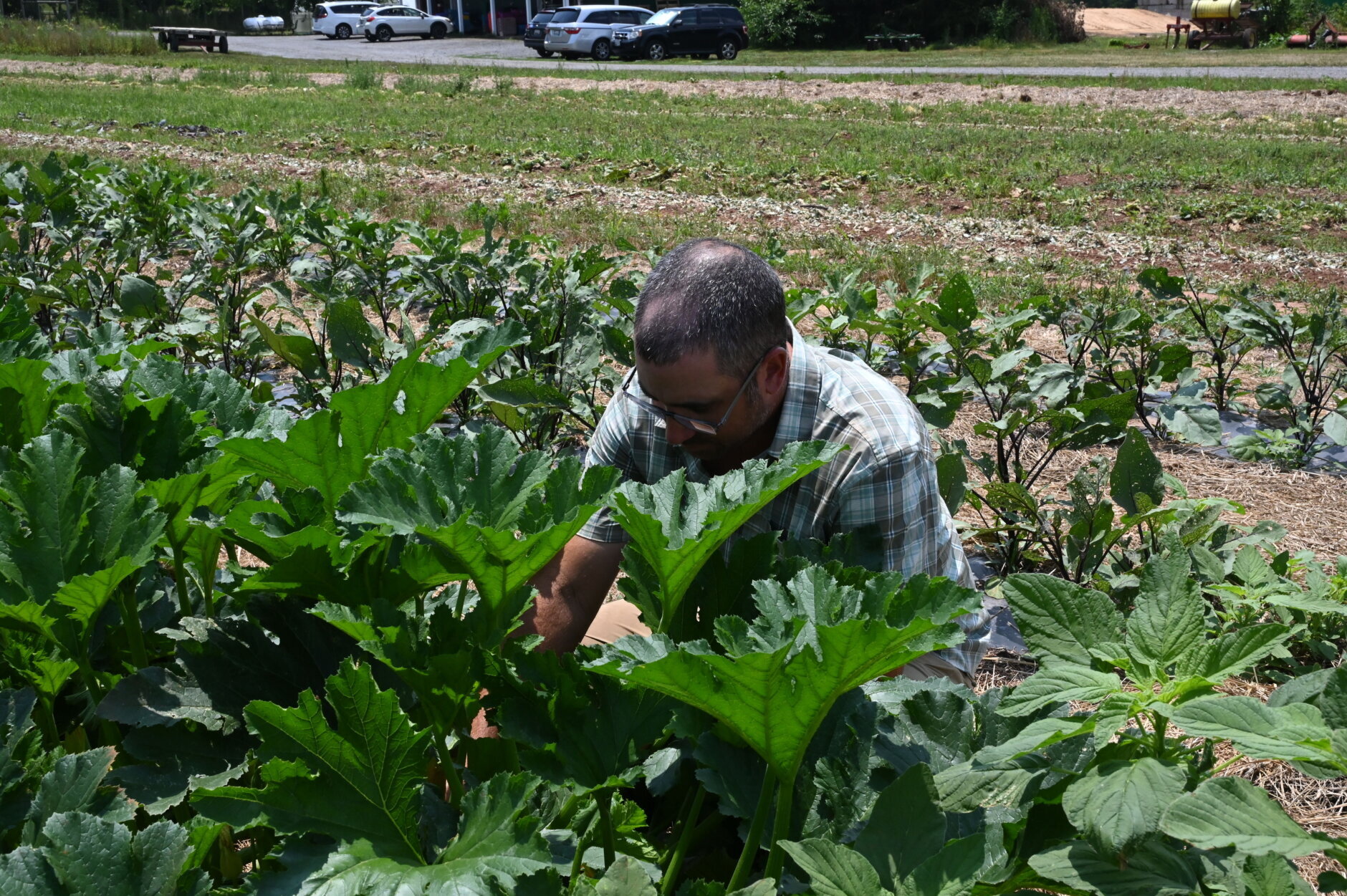
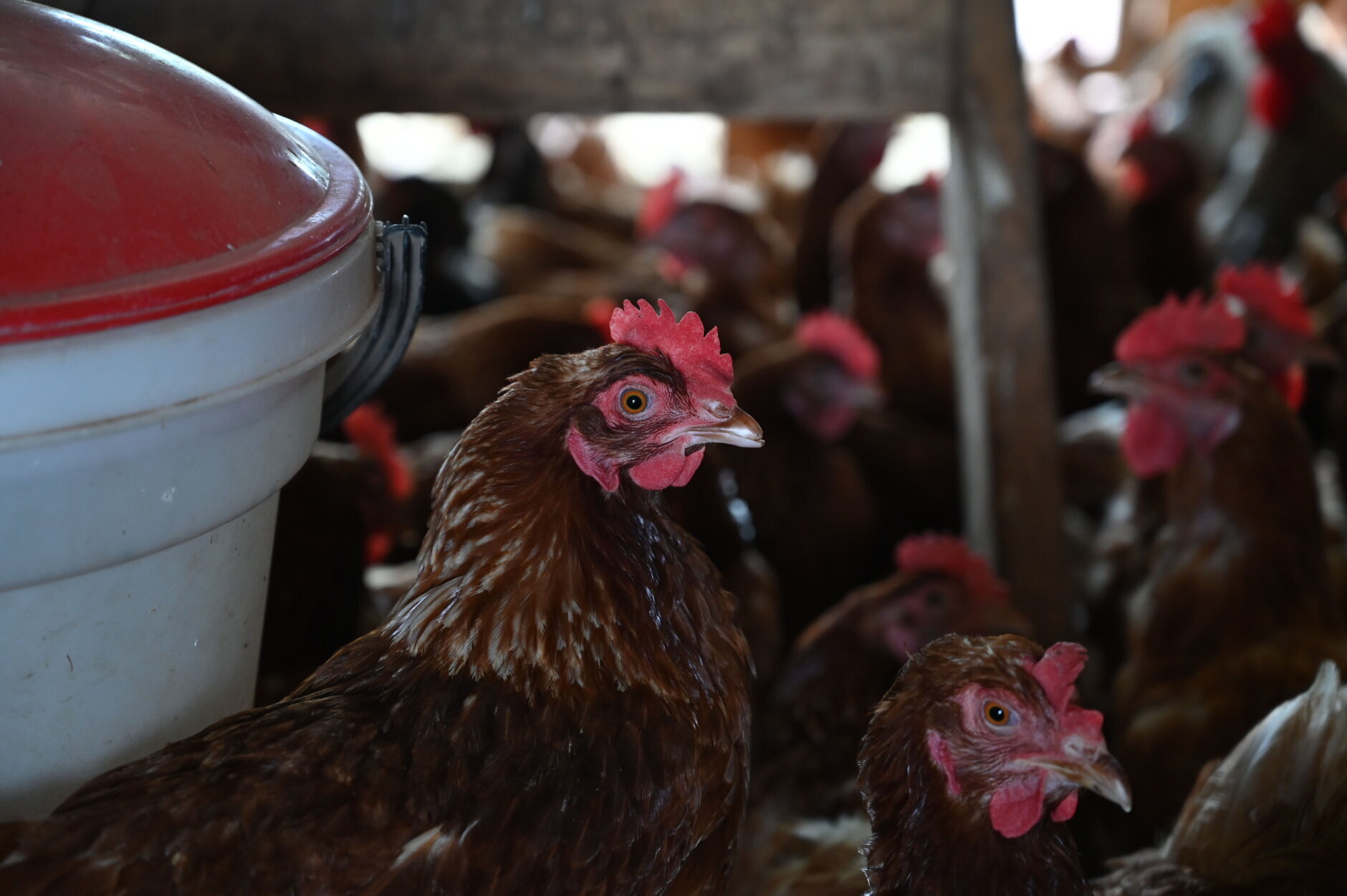
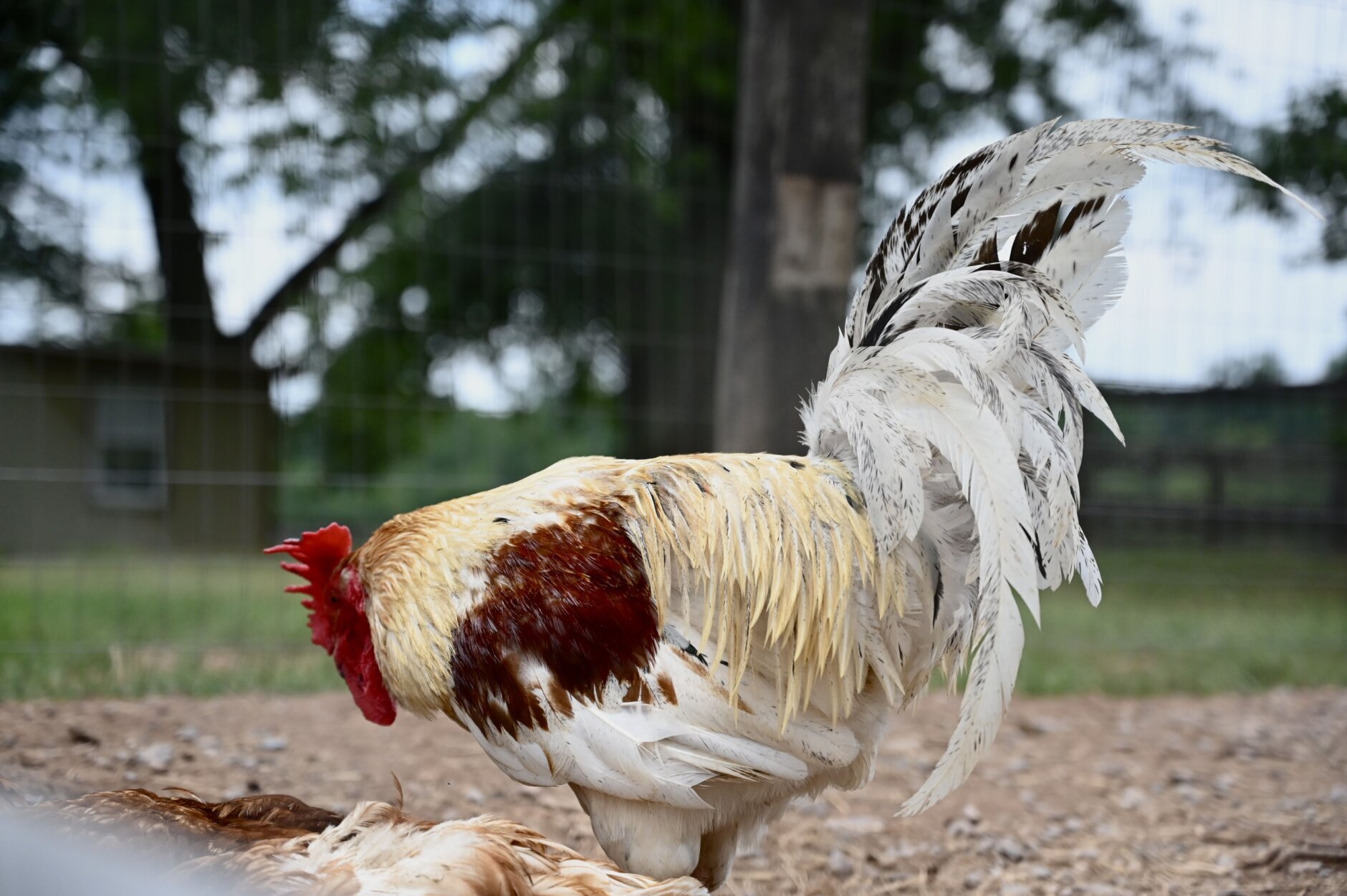
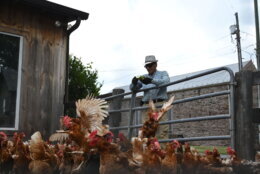
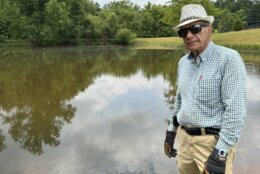
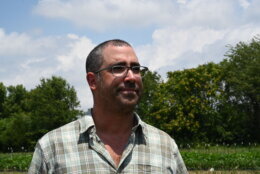
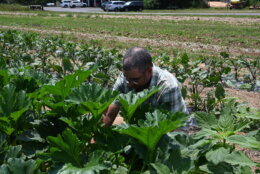
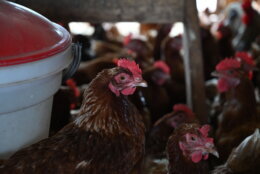
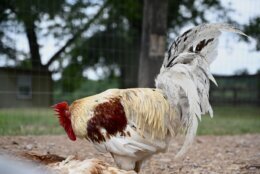
‘There’s nothing I can do about it’
Just down the road from East Oaks Farm, Michael Protas has an experience that echoes Mohadjer’s.
The pond on the One Acre Farm, which is used for irrigation, has also receded. Without enough rainfall to overcome the drought conditions, “and that pond doesn’t refill, then I will have some serious concerns.”
But like Mohadjer, Protas said his farm has managed fairly well: “My tomatoes, winter squash, things that don’t like their leaves getting wet, are happy because their leaves aren’t getting wet.” But if the dry conditions continue, and he loses the ability to irrigate using the water from his pond, “then I’m singing a completely different tune.”
Both farmers said they are watching their staff and employees carefully as well. The effects of the extreme heat take a heavy toll on farmworkers.
Protas said he encourages workers to take “significant breaks” to protect their health: “When we signed up for farming, we said we’re going to work outside, but this is kind of the extreme end of working outside.”
Protas offers a Community Supported Agriculture (CSA) membership where members pay a certain amount per week for a variety of crops grown. In exchange, Protas explained, members have to have some flexibility: some crops may not do well, or even fail.
“I want to provide all the vegetables that I said I was going to, and I think I can,” but sometimes, he said, weather conditions can change those plans — something members understand.
When asked how he monitors the drought and weather conditions, Protas said, “I use the weather apps like everybody else, and they’re consistently inconsistent, and I use soil moisture meters and hope for the best, I guess.”
“To be honest, I’ve come to learn to not overly freak out because there’s nothing I can do about it anyway, so you just kind of roll the dice and that’s the deal,” he added.
Get breaking news and daily headlines delivered to your email inbox by signing up here.
© 2024 WTOP. All Rights Reserved. This website is not intended for users located within the European Economic Area.


